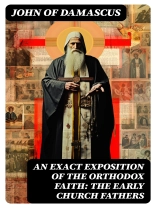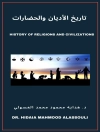In ‘An Exact Exposition of the Orthodox Faith: The Early Church Fathers, ‘ John of Damascus offers a systematic and rigorous exploration of Christian doctrine, drawing heavily from scriptural foundations and the teachings of the early Church Fathers. Characterized by a balanced blend of philosophical reasoning and theological insight, this work serves as both a catechetical tool and an apologetic defense against heresies that emerged in the early centuries of Christianity. Written in an accessible yet profound style, John of Damascus systematically addresses key elements such as the nature of God, Christology, and the sacraments, all while navigating the complexities of the cultural and theological milieu of his time, thereby solidifying the tenets of Orthodox Christianity. As a prominent theologian and a staunch defender of the Orthodox faith, John of Damascus was born in the late 7th century in Damascus, a city at the crossroads of diverse cultures and religious thought. His life spanned a period of significant theological contention, as Islam’s rise posed challenges to traditional Christian interpretations. Drawing from his experiences and extensive knowledge of both Greek philosophy and ecclesiastical tradition, John synthesized the teachings of the Fathers to provide clarity and orthodoxy for a world in turmoil. ‘An Exact Exposition of the Orthodox Faith’ is an invaluable resource for anyone wishing to deepen their understanding of Christian orthodoxy. This book not only serves as an essential reference for scholars and theologians but also invites lay readers to engage with the fundamental truths of the faith. Written with precision and devotion, this work remains a pivotal contribution to the landscape of Christian theology.
A propos de l’auteur
John of Damascus, also known as St. John Damascene, was a notable Christian monk, priest, and scholar of the early 8th century. Born into a wealthy Christian family in Damascus, Syria, around 675–749 AD, John became a prominent figure in the history of Christian theology, particularly within the Eastern Orthodox tradition. He is best known for his strong defense of icons during the Iconoclast Controversy, which led to his enduring legacy as a fierce advocate for the veneration of images in Christian worship. A polymath, John of Damascus also made significant contributions in the fields of law, music, philosophy, and theology. His most influential work, ‘An Exact Exposition of the Orthodox Faith: The Early Church Fathers, ‘ remains a crucial theological text that systematized the doctrinal teachings of the early Church Fathers. This work further established him as a pivotal link between ancient Christian thought and later medieval scholasticism. His literary style combines rigorous argumentation with a profound understanding of scripture and patristic writings, reflecting the intellectual traditions of both the Christian East and the Greek philosophical heritage. John’s impact on Christian thought led to his recognition as a saint in both Eastern and Western branches of Christianity and a Doctor of the Church in the Roman Catholic Church. His feast day is celebrated on December 4 in the Eastern Orthodox Church and March 27 in the Roman Catholic Church.




